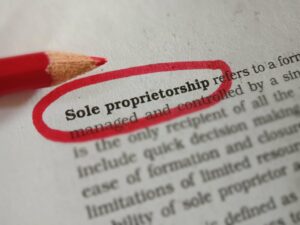
As a dropshipper, you could qualify for a tax exemption certificate. Because you resell products, you can apply for an exemption from the Multistate Tax Commission. Keep in mind that this exemption only applies to 36 U.S. states, so this won’t exempt you from sales tax everywhere, but it can certainly lighten the load. In both California and Texas, it is generally mandatory for drop shippers to collect sales tax if they have nexus in the state. Nexus is a connection between the seller and the state that makes the seller responsible for collecting and remitting sales tax. Nexus rules can vary between states, so it is essential for drop shippers to understand nexus requirements in California, Texas, and other states where they do business.
- In most states, sales taxes are only levied on retail sales, not sales for goods that will be resold.
- When it comes to sales tax on shipping costs, each individual state has its own requirements and the more states you deal with, the harder it can be to keep up with everything you need to know.
- Other states require an in-state exemption, but without a nexus in that state, the retailer may not be able to obtain this certificate.
- As long as you have A-plus suppliers, you can focus on marketing and making sales while other parties handle storage and shipping.
- A nexus is a connection or presence that triggers the requirement to collect and remit sales tax, and it can result from a physical location, sales threshold, or even the activities of affiliates and partners.
- Many states will accept an out-of-state resale certificate, multi-jurisdictional form or alternate documentation in a drop-shipping situation.
- Assuming that your customer is the end-user of the products sold, this second sale is a retail sale and is taxable as dictated by the laws of the state where your customer is located.
What is exempt from NYC sales tax?
- Nevertheless, if the goods sold are subject to sales tax in the state, the supplier must validate the exempt transaction by collecting a resale or exemption certificate from the seller.
- Here, Rebecca shows Dan that she’s also a retailer who plans to resell the hat, and so Dan doesn’t need to charge sales tax to her.
- States look at whether dropshippers have a nexus in their jurisdiction to determine if you need to pay taxes in that state.
- Without paying your taxes on time, you risk getting in trouble with the law.
- The United States has a federal income tax, but most U.S. states also have state income taxes, too.
But it’s crucial for small businesses to make sure they are following these rules. Negative consequences resulting from noncompliance can be overwhelming who pays sales tax on drop shipments for small businesses with limited resources. In these cases, the shipper may fulfill that obligation by collecting the sales tax from you, the seller.
Do I Need to Pay a Dropshipping Income Tax?

In drop shipping scenarios, a seller takes an order from a customer, then turns around and orders that item from a supplier, who ships it to the customer on behalf of the seller. By obtaining the required sales tax permits and staying up to date with multistate tax regulations, drop shipping businesses can maintain compliance and avoid potential legal and financial consequences. However, Dan Dropshipper may have sales tax nexus in the state where Bella is located.
Scale Without Fail: 6 Steps To Grow Your Dropshipping Business
Resale certificates are documents that allow dropshippers to buy products without a sales tax since they’re purchased to resell. However, you should know that not all suppliers and vendors will accept resale certificates. As always, knowing your nexus is the first step in sales tax compliance, and shipping costs are no different. If you have nexus in a state, and that state https://www.bookstime.com/ taxes shipping costs, then you will be required to collect sales taxes on those orders. As e-commerce businesses continue to grow, managing sales tax compliance becomes more complex, especially in the context of drop shipping. There are technology solutions available to simplify the process and ensure accuracy, such as tax automation and exemption certificate management.
Implementing these technology solutions can help e-commerce businesses involved in drop shipping effectively navigate the challenges of sales tax compliance. Integrating tax automation tools like Avalara or TaxJar and managing exemption certificates will contribute to a streamlined and accurate sales tax process. Another crucial aspect of managing sales tax compliance in drop shipping is handling resale and exemption certificates.

Not all vendors will accept resale certificates
Delivering the goods yourself may have different sales tax implications. Drop shipping has always been tricky for sales tax precisely because both the seller and the supplier (aka, drop shipper) can have nexus and sales tax obligations — or not. And the tax complexity of drop shipping has only increased since Wayfair. Import taxes may be applicable to drop shipped products from overseas suppliers, depending on the destination country and the value of the goods being imported. Customers are generally responsible for paying import duties, taxes, and fees upon delivery.
How Do Tax Rates Work with Dropshipping in Multiple States?
Drop shipping is a popular business model in the ecommerce world where a retailer does not keep the products it sells in stock. Instead, they purchase the product from a third-party supplier, usually a manufacturer or wholesale distributor, who then ships it directly to the customer. This eliminates the need for retailers to manage inventory and simplifies the supply chain process, making it an attractive option for start-ups and small businesses. Usually you do not need to pay sales tax on the orders you make from your suppliers.

How to handle sales tax on shipping: A state-by-state guide
It is important for online retailers to be aware of and comply with both economic and physical nexus laws in the states where they trade. Here, Rebecca shows Dan that she’s also a retailer who plans to resell the hat, and so Dan doesn’t need to charge sales tax to her. In this scenario, Dan does not collect sales tax from Rebecca, even if Dan has sales tax nexus in the state where Bella Buyer is located. However, Debbie Drop Shipper may have sales tax nexus in the state where Bobby is located. Since Debbie is drop shipping the product to Bobby at her ship-to address, Debbie would be required to charge sales tax from the buyer, Ron Retailer, if Bobby is located in a state where Debbie has nexus.

Applying for a Sales Tax Permit
Determining the “place of supply” can differ based on your business location, what you sell, and to whom. Or you are researching how to dropship, but are you wondering what to do with taxes like the sales tax and VAT? In this awesome guest post from Quaderno, you learn everything that you need to know about the taxes for when you’re dropshipping. While sales tax might be the first thing that comes to mind, dropshippers actually deal with a variety of different taxes. If you’re a for-profit business, the U.S. government requires you to pay taxes.
Having a comprehensive record-keeping system allows you to efficiently deal with tax authorities and auditors, avoiding surprises or lapses in compliance. Ron doesn’t have the coffee cup in his stock, so he purchases the cup from Debbie Drop Shipper, and has Debbie deliver the cup to Bobby. We highly recommend discussing your specific tax obligations with your tax professional.
